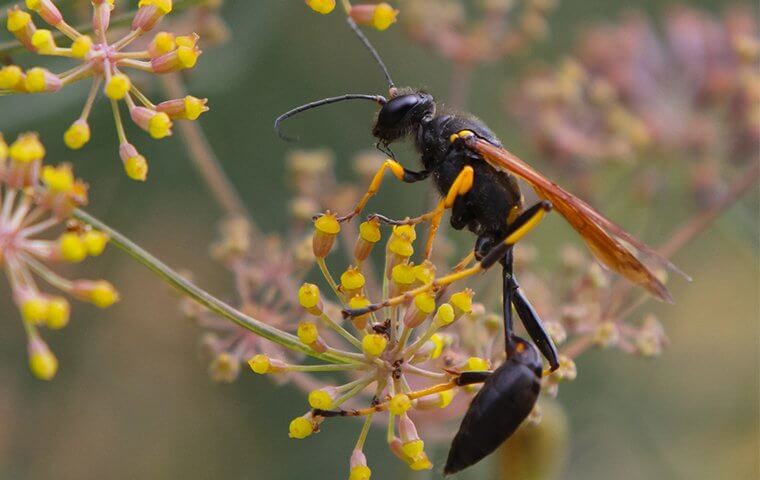Stinging Insects Pest Control
What are stinging insects?
Some stinging insects feed on many of the same foods we do like sugary liquids and proteins, which is why yellow jackets and other stinging insects are problematic around garbage cans, recycling bins, and wherever there is food outdoors. It’s important to promptly secure your trash to avoid them hanging out by your trash cans.

Are stinging insects dangerous?
Most people cringe at the sight of wasps, yellow jackets, and other stinging insects near their homes, and for a good reason. When stinging insects nest in a yard or other high-traffic areas near people, the risk of a sting occurs.
When stinging insects live outside, away from us and our homes, they pose little threat. But when they decide to share our yards and houses, they are dangerous. Stinging insects are small, and their only means of defense is using their venom-filled stinger.
In those allergic to the venom, the consequences of being stung can be life-threatening. Even those who are not severely allergic would rather not be stung by these pests, causing people to avoid their yards when stinging insects are present.
Why do I have a stinging insect problem?
Where will I find stinging insects?
Stinging insects will take advantage of any space providing them with an appropriate area to build a nest near their preferred food sources. Whether you live in a more rural location, in the city, or somewhere in between, you will find stinging insects in all areas.
Aerial (above the ground) nesting locations include tree branches, rock crevices, utility poles, bridges, roof eaves, and doorways. Those nesting on the ground build their nests under shrubbery, dense vegetation, naturally occurring ground holes, and the abandoned nests of small animals. Stinging insects also like to build nests indoors in large open spaces found in man-made structures like garages, sheds, barns, and warehouses.
How do I get rid of stinging insects?
To eliminate stinging insects from your Bradenton property, or the surrounding locations, call Rodent Solutions today.
How can I prevent stinging insects in the future?
- Maintain your property’s trees and shrubs by cutting back overgrown limbs and branches. Cut shrubs and bushes back away from walkways and your home’s exterior walls.
- Seal up spaces in your exterior walls that may allow stinging insects to move into your home.
- Fill in ground holes that develop in your yard.
- Limit the flowering vegetation you have planted on your property, especially near your house.
- After eating outside, clean up leftover food and drinks that could attract foraging stinging insects.
- Keep tight-fitting lids on trash cans and recycling bins.
Learn more about our general pest control and more pest control solutions in Bradenton, FL.
